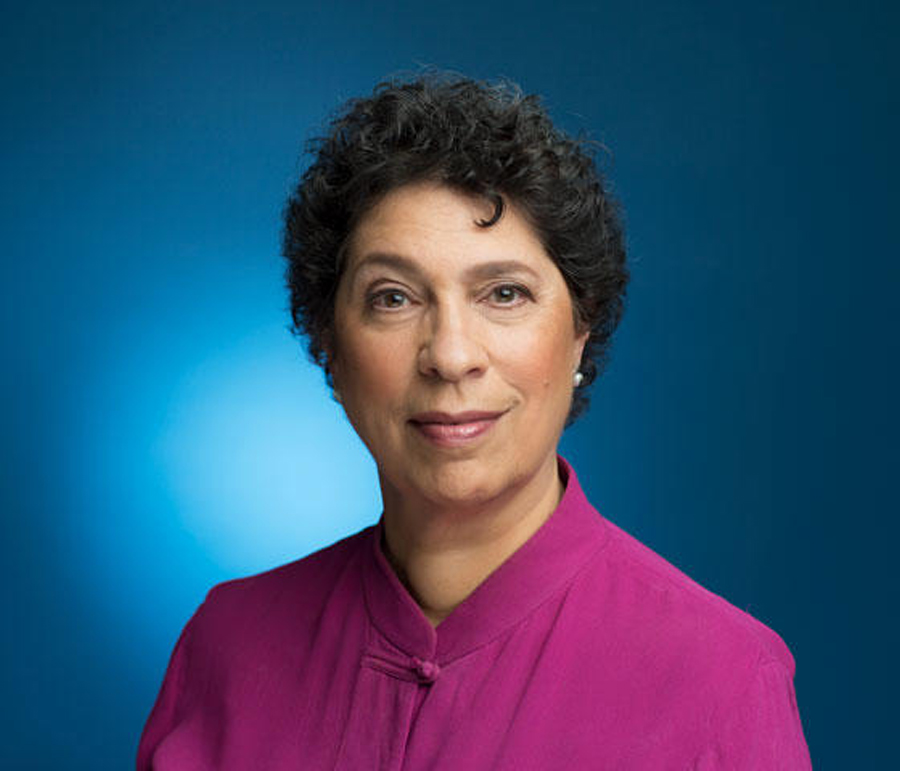Faculty | highlights
Faculty
Passing Liberty’s Torch:
A Conversation with
Professor Susan Herman
Professor Susan Herman

Passing Liberty’s Torch:
A Conversation with Professor Susan Herman
Susan Herman, the inaugural Ruth Bader Ginsburg Professor of Law, stepped down recently as president of the American Civil Liberties Union (ACLU) after serving 12 years in that role and 32 years on its board of directors. Here, she reflects on her presidency during a time of significant and ongoing challenges to rights and liberties under the Constitution, particularly those of racial minorities and other historically marginalized people.
What accomplishments during your tenure as president are you most proud of?
Particularly over the past four years, the most important part of my role as president was to help keep the ship steady through the turbulence. During this time, the ACLU brought over 430 legal actions against the federal government, some of which were existential battles about the rule of law, and over 100 COVID-related lawsuits. The ACLU’s very talented staff, including some Brooklyn Law School alumni, did amazing work, even while working remotely.
Why did you make the decision to step down now?
Last year, 2020, was the ACLU’s centennial. I decided to turn over the gavel to someone new now because the timing was good for us to have an orderly transition to new leadership for the beginning of the ACLU’s second century.
The ACLU is now poised, along with the country, to enter a new chapter. My successor, Deborah Archer, is the first nonwhite ACLU president. Twelve years ago, I asked her to serve as the ACLU’s national affiliate equity officer, and she played a major role in helping the ACLU grow into a more fully diverse and inclusive organization. Our affiliates and staff are all far more diverse and inclusive now, and 60 percent of the members of the ACLU National Board identify as nonwhite.
What are your hopes for the future direction of the ACLU?
The ACLU is launching some very important racial justice initiatives, building on our previous work against mass incarceration policies, and on the national outrage over the murder of George Floyd. An increasing number of people have been recognizing that the ACLU is, and has been, not just a white liberal organization defending free speech, but one that works to defend the rights and liberties of everybody. I believe that this will really blossom with Deborah at the helm.
This past year has been a tumultuous one. Can you offer us some historical perspective on these times?
Reflecting on the ACLU’s first century, I was consistently struck by how much the civil liberties issues around 1920 resembled our issues a century later: xenophobia, assaults on freedom of speech, demonization of people regarded as different, and even a pandemic the U.S. president tried to hide. As ACLU co-founder Roger Baldwin said, “No civil liberties battle ever remains won.” American history is full of pendulum swings, but it is helpful to remember that we did survive the World War I era, as well as the Civil War, and the country’s first transition of power in the 1800 presidential election, which rivaled the 2020 election in its hyper-partisanship and drama. The challenge is to learn from these wrenching experiences so that despite inevitable reverses, we can continue to bend the arc of our history toward justice.
Read the full interview: www.brooklaw.edu/herman